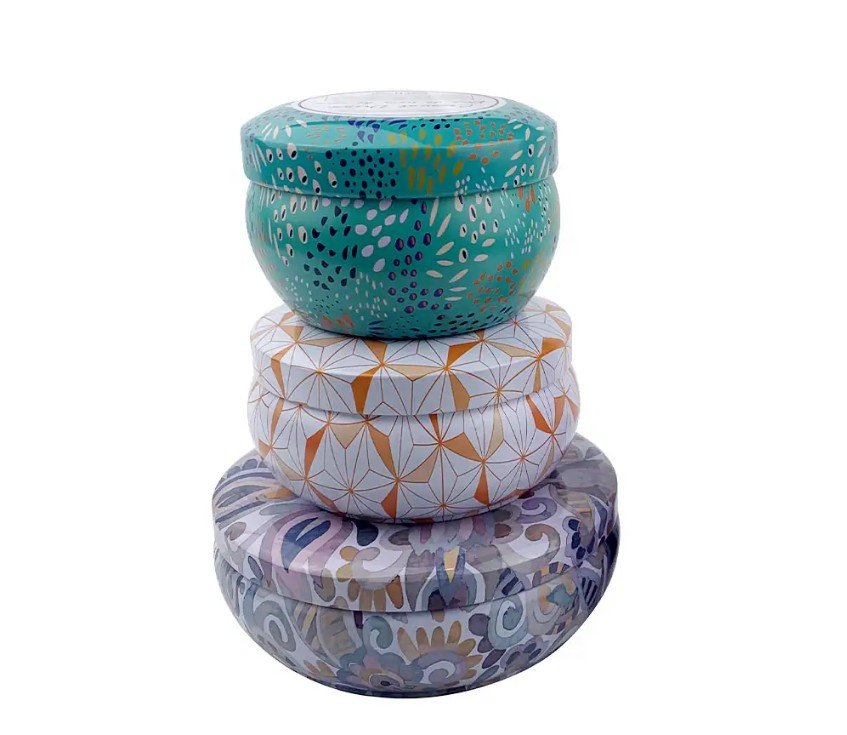As consumers become more environmentally conscious, companies increasingly turn to eco-friendly packaging options. One such option that has gained popularity in recent years is using tin boxes. Tin boxes, also known as tin cans or containers, are a great alternative to traditional packaging materials such as plastic, Glass, and paper. Not only are they durable and practical, but they also offer a range of environmental benefits. In this article, we will explore the ecological benefits of tin boxes compared to other packaging materials.

Tin Boxes vs. Plastic
Plastic packaging has been a popular choice for many years, but it has become a primary environmental concern due to its non-biodegradable nature. Plastic can take hundreds of years to decompose, and it is estimated that 8 million tons of plastic end up in our oceans yearly. Tin boxes, on the other hand, are fully recyclable and can be reused multiple times before being recycled. They are also much more durable than plastic, meaning they can withstand more wear and tear and are less likely to end up in landfills.
Tin Boxes vs. Glass
Glass is often seen as a more eco-friendly packaging option than plastic, but it still has drawbacks. Glass is heavier than tin, requiring more energy to transport. It is also more fragile, making it more likely to break during transportation or in the home, leading to waste. Tin boxes, on the other hand, are lightweight and durable, making them a more practical and eco-friendly option for many products.
Tin Boxes vs. Paper
Paper is a renewable resource, often seen as a more eco-friendly option than plastic or Glass. However, paper production requires a lot of energy and water, which can lead to deforestation and habitat loss. Tin boxes, on the other hand, are made from tinplate, which is a recyclable material that can be made from recycled steel. The production process for tin boxes requires less energy and water than paper production, and it does not contribute to deforestation.
Tin Boxes vs. Other Metals
Tin is not the only metal used for packaging. Aluminum, for example, is often used for beverage cans. While aluminum is a recyclable material, it requires a lot of energy to produce, and the process can lead to greenhouse gas emissions. Conversely, tin is a more energy-efficient material and can be recycled indefinitely without losing its quality. This makes tin boxes a more sustainable choice than aluminum cans.
Tin Boxes for Sale
Tin boxes are available in a wide range of sizes and shapes, making them suitable for various products. They are commonly used for food packaging, but they can also be used for cosmetics, pharmaceuticals, and other products. Tin boxes are available for sale in many retail outlets, including supermarkets, department stores, and online retailers.
Wholesale Tin Box
If you want to purchase in bulk boxes, consider buying wholesale. Wholesale tin boxes are available from various suppliers, including manufacturers, distributors, and online wholesalers. Buying wholesale can be a cost-effective way to purchase tin boxes, allowing you to buy in bulk and reducing the need for frequent orders and transportation.
Tin Containers with Lids
Tin containers with lids are popular for many products, including food, cosmetics, and pharmaceuticals. Tin containers with lids offer a secure and airtight seal, which helps to keep products fresh and protected. They are also reusable, which makes them a practical and eco-friendly option for many products.
Conclusion
Tin boxes are an eco-friendly and practical packaging option for many products. They are durable, lightweight, and fully recyclable, which makes them a sustainable choice compared to other packaging materials like plastic, Glass, paper, and other metals. Tin boxes are made from tinplate, a recyclable material that requires less energy and water than other packaging materials like paper and aluminum. Furthermore, tin boxes can be recycled indefinitely without losing quality, making them a cost-effective and environmentally conscious option for many products.
Tin boxes come in a range of sizes and shapes, and they are suitable for various products like food, cosmetics, and pharmaceuticals. They offer a secure and airtight seal, which helps to keep products fresh and protected. Tin containers with lids are also reusable, which makes them a practical and eco-friendly option for many products.
Tin boxes are available for sale in many retail outlets like supermarkets, department stores, and online retailers. Wholesale tin boxes are also available from various suppliers, including manufacturers, distributors, and online wholesalers. Buying wholesale can be a cost-effective way to purchase tin boxes, allowing you to buy in bulk and reducing the need for frequent orders and transportation.
Boxes offer a range of environmental benefits compared to other packaging materials like plastic, Glass, paper, and other metals. They are made from recyclable material, require less energy and water to produce, and can be recycled indefinitely without losing their quality. Tin boxes are available in a range of sizes and shapes and are suitable for various products like food, cosmetics, and pharmaceuticals. They offer a reusable secure, airtight seal, making them a practical and eco-friendly option for many products. With the increasing demand for eco-friendly packaging options, tin boxes are an excellent choice for businesses looking to reduce their environmental impact and meet the needs of environmentally conscious consumers.



